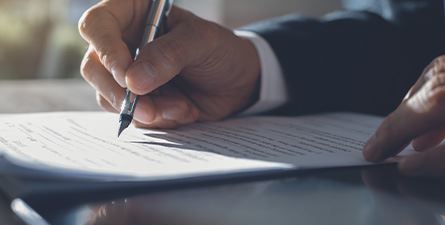If you are considering filing for Chapter 7 bankruptcy in the state of New Jersey, it is helpful to understand the different terms associated with a bankruptcy case. One of those terms involves the kind of debts creditors claim against you, known as unsecured claims. These kinds of claims involve no collateral and may end up being discharged in bankruptcy, although some unsecured claims will have to be paid in any case.
According to How Stuff Works, an unsecured claim is a debt that is not backed by a claim on property if you do not pay. The good or service is offered by creditors based upon a promise or an assumption that you can pay the money at a future date. If you fail to pay the amount at an agreed upon time, the creditor can try to collect that money from you. But without a collateral agreement, creditors are limited to collecting the money without taking anything from you to compensate for the debt.
In bankruptcy, claims against you will be compiled into priority and nonpriority classifications. The priority debts, no matter if they are secured or unsecured, will be paid first. If there is money left after the priority debts are paid off, the nonpriority debts will be taken care of. Typically, nonpriority unsecured debts include personal loans, medical bills, and debt incurred from credit card expenses. However, these debts may end up being discharged, meaning you are no longer responsible for them.
Still, there are unsecured claims that cannot be discharged, so you will be liable to pay them off even if your bankruptcy is completed. According to FindLaw, these include alimony and child support payments as well as particular taxes. Money owed for educational purposes that is guaranteed by a government authority also cannot be discharged. Debts resulting from a DUI conviction or other personal injury, as well as criminal restitution orders, are likewise considered mandatory.

